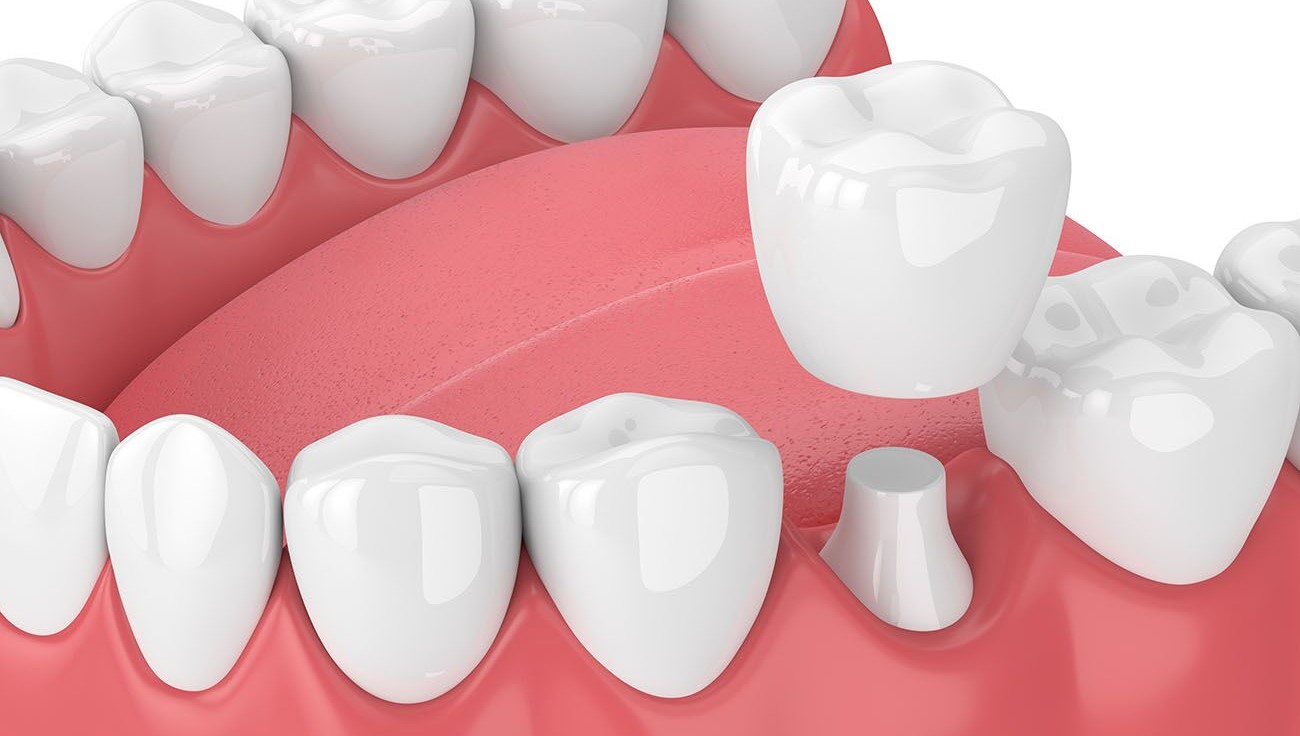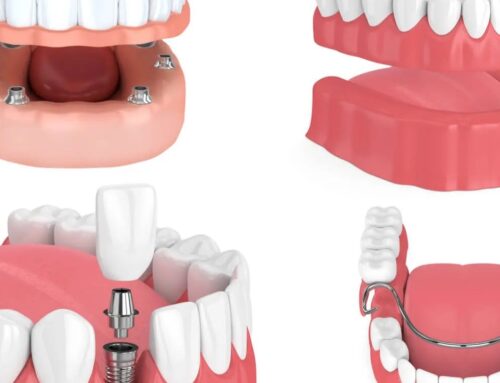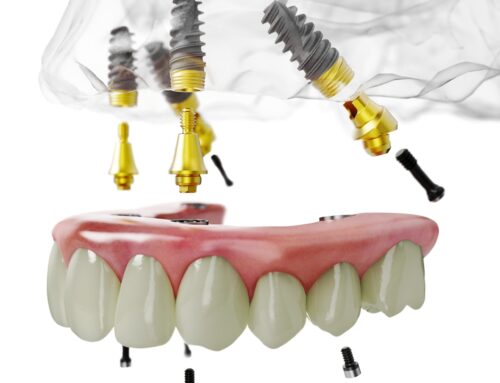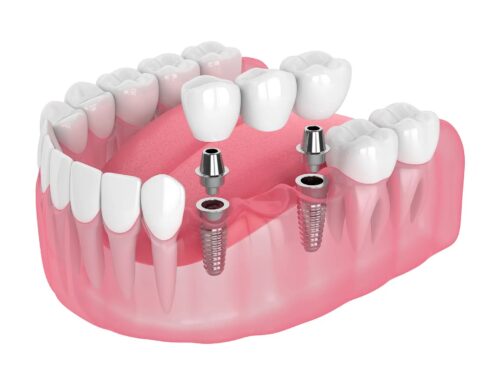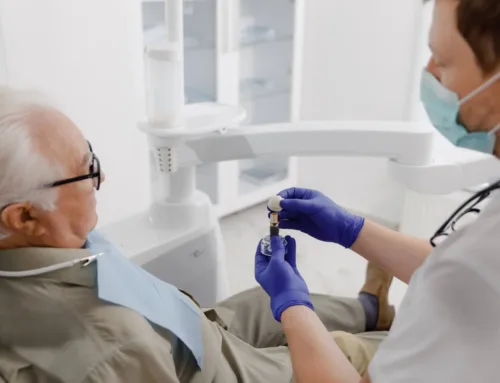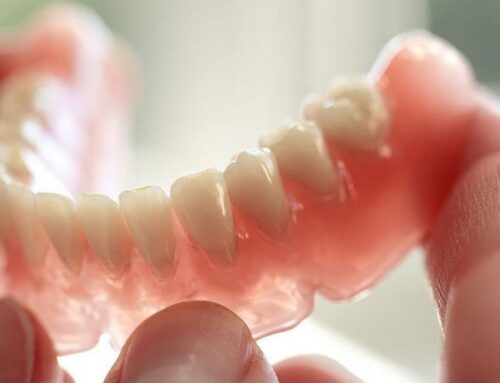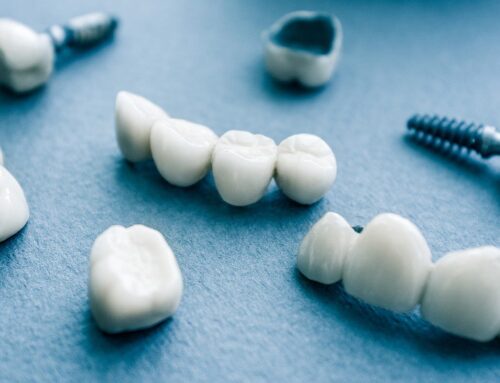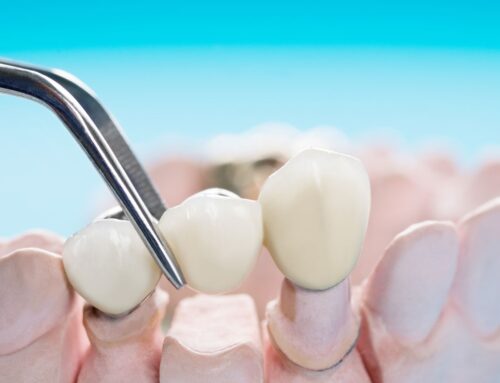Dental Bonding vs. Dental Crowns
Both dental bonding and dental crowns serve a unique purpose and are used in various scenarios to enhance your overall oral health and aesthetic.
Dental bonding is minimally invasive and used to repair minor dental imperfections, such as chips, cracks, gaps, or discolouration. It uses composite resin that matches the colour of your teeth. It is then sculpted, shaped, and hardened to blend seamlessly with the natural dentition of your other teeth.
Alternatively, dental crowns are prosthetic devices that are used to cover and protect teeth that are damaged, weakened, or severely decayed. Dental crowns help to provide structural support, restore chewing function, and prevent further deterioration of the underlying structure of the tooth. The caps are custom made and cover the entire visible portion of the tooth.
Essentially, both are options that are frequently used by dentists to protect teeth that have been damaged. The type and extent of damage will determine whether dental bonding or a dental crown is more appropriate.
Dental Bonding
What is dental bonding?
Dental bonding is also sometimes called composite bonding or tooth bonding. It is a very versatile procedure that corrects minor dental imperfections. Tooth-coloured composite resin is used to repair chips, cracks, gaps, or discolouration in the teeth. It can also reshape misaligned or uneven teeth.
In cases of gum recession, dental bonding can also be used to cover the exposed tooth roots to improve both sensitivity and aesthetics.
What material is used for bonding?
Dental bonding is primarily made from composite resin, which is a blend of plastic and glass particles. It is the optimal choice due to its ability to mimic the appearance of teeth. Dentists can customize the colour of the resin to match the rest of your teeth, allowing for seamless integration between the resin and your teeth, providing you with a beautiful smile.
How is bonding applied?
The good news is that dental resin can typically be applied in a single dentist visit. The process begins with the dentist preparing the tooth surface by roughening it and applying a conditioning liquid to enhance bond strength. The composite resin is then applied, shaped, and moulded to your teeth to look natural and hide the imperfection or injury. Once the resin has been fully applied, a special curing light is used to harden it, similarly to when you get your nails done at a salon. This helps ensure the resin stays in place and lasts a long time. The tooth is then polished to achieve a smooth finish that blends in with your natural dentition.
How long does dental bonding last?
Dental bonding is a very durable solution for minor imperfections, however, it is not as resilient as a dental crown. On average, dental bonding tends to last for five to ten years if it is properly cared for. Oral hygiene, dietary choices, and the location of the bonded tooth will all impact the life span of your dental bonding.
How much does dental bonding cost?
Dental bonding is very affordable compared to some other dental procedures. It will vary based on the extent of the procedure, how many teeth are involved, and where your dentist’s office is located. Most dental bonding ranges from 200-$600 per tooth.
Learn more about dental bonding.
Dental Crowns
What are crowns?
Dental crowns, also sometimes called dental caps, are prosthetic devices that are used to cover and protect damaged, weakened, or severely decayed teeth. Whereas dental bonding is more focused on the aesthetics of the tooth, dental crowns provide multiple benefits to the health of your teeth, the look of your smile, and your quality of life. Dental crowns provide structural support to your compromised tooth to help improve chewing functionality while preventing further deterioration of the tooth structure.
What are dental crowns made from?
Dental crowns can be made from various materials, and you will often have a choice of which you’d like to receive. Each material provides different advantages and disadvantages. Common materials frequently used are porcelain, porcelain-fused-to-metal (PFM), zirconia, and various metal alloys. Porcelain is often the favourite choice as it has a natural appearance and translucency that resembles real teeth. PFM crowns mix the strength of metal with the aesthetics of porcelain, making them a great choice for posterior teeth. Zirconia crowns are exceptionally durable and biocompatible, making them the best choice for those with metal allergies. They are also the best choice for those who grind their teeth or clench their jaws.
What is the process?
Dental crowns typically require two separate visits to the dentist. On the first visit, the dentist will prepare the affected tooth by removing any damaged or decayed tissue. They will also reshape the tooth to accommodate the crown. An impression of the tooth is then taken and sent off to a dental laboratory. In the laboratory, a custom crown will be prepared based on your individual mouth and tooth shape. In many cases, a temporary crown will be placed on the tooth until a permanent one can be installed.
Once the permanent tooth is ready, the patient will go back to the dentist for placement. At this second appointment, the crown is bonded securely in place using dental cement. Dental cement is made from a polyelectrolyte solution and fluoride-containing aluminosilicate glass powder.
How long do crowns last?
Crowns can last a very long time if properly cleaned and cared for. Dental crowns usually last upwards of ten to fifteen years. The material the crown is made from, dietary habits, and oral hygiene will all impact how long your crown lasts. Professional cleanings and regular check-ups are essential for monitoring the integrity of the crown, ensuring optimal oral health, and catching any problems quickly.
Dental crowns can fall out. If that happens, try to keep the crown if possible. If it’s not damaged, a dentist can usually reinstall that same crown in your mouth after properly cleaning and disinfecting it.
Georgian Dental offers same day emergency dental services in many cases. If, for whatever reason, you cannot get into the dentist right away, you can temporarily attach the crown back into your mouth using dental adhesive or temporary dental cement available at most pharmacies. Make sure you clean the crown thoroughly using toothpaste before putting it back in your mouth.
How much do crowns cost?
Dental crown costs will vary depending on several factors. This includes the type of material chosen, how difficult the procedure is, and the city in which your dentist is located. Porcelain crowns are the most expensive option. The average dental crown procedure costs anywhere from $800 to $2000. This makes it significantly more expensive than dental bonding.
Why Crowns Might Fall Out
Crowns can slowly become loose. Many times, you won’t notice it’s become loose until it falls out. There are many reasons why that can happen. Sometimes the tooth underneath the crown has developed tooth decay. Unfortunately, in some cases, bacteria can get into the remaining tooth through the bottom of the crown. The cement that seals the crown can also deteriorate or be washed away, causing the crown to come loose.
Other potential causes are:
- Grinding your teeth or clenching your jaw
- A crown that was fitted improperly
- Lack of cement to keep the crown in place
- Sticky or hard foods
- Aggressive tooth brushing
Learn more about Dental Crowns.
Choosing the Right Treatment Option
When considering dental bonding vs. dental crowns, there are a lot of considerations. Ultimately, the extent of the damage will be the biggest determining factor. Consulting with an experienced dentist will help you determine the most suitable treatment based on your unique needs and preferences.
Dental bonding is ideal for minor cosmetic enhancements, whereas dental crowns offer superior strength, durability, and functionality for damaged, injured, or compromised teeth.
Both are effective solutions to enhance your smile and your oral health. A dentist will be able to determine the best solution for your mouth based on the damage present. We empower all our patients to learn more about dental procedures so they can make informed choices about their dental care.
For personalized guidance and expert dental care, schedule a consultation with our experienced team at Georgian Dental today! We are committed to providing our patients with comprehensive dental solutions tailored to their individual needs, lifestyle, and budget.
Georgian Dental Is Here for All Your Oral Health Needs
Your smile deserves nothing but the best! At Georgian Dental, our team of experienced professionals is committed to providing you with personalized care and exceptional results in a comfortable and welcoming environment.
Book a free consultation today to see how we can help you better care for your teeth.
Appointment Request
If you’re interested in any of our procedures, and would like to meet with one of our dentists to discuss options, costs and get additional information, complete this short form and we’ll give you a call to arrange for a no-obligation appointment at our Barrie clinic.
